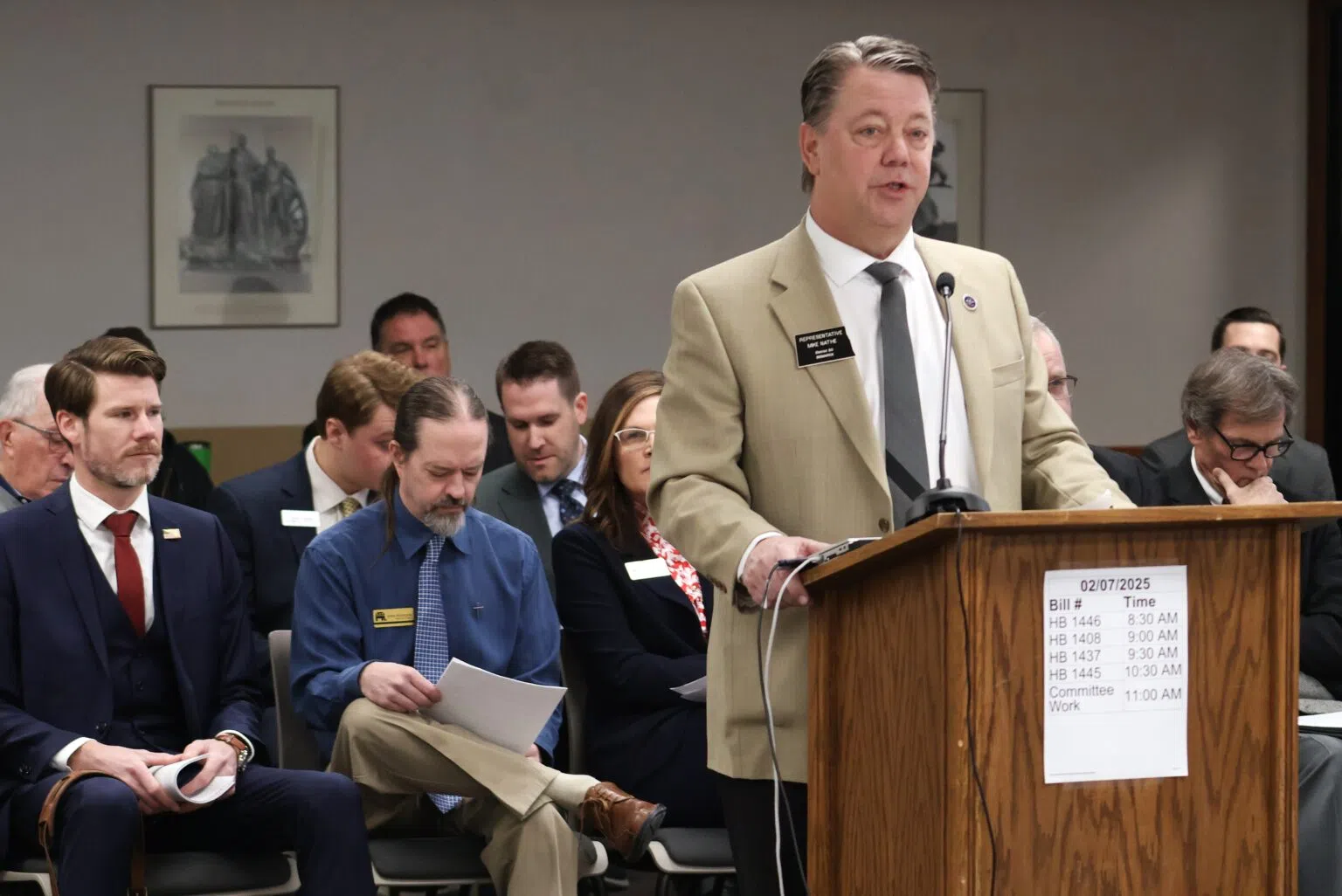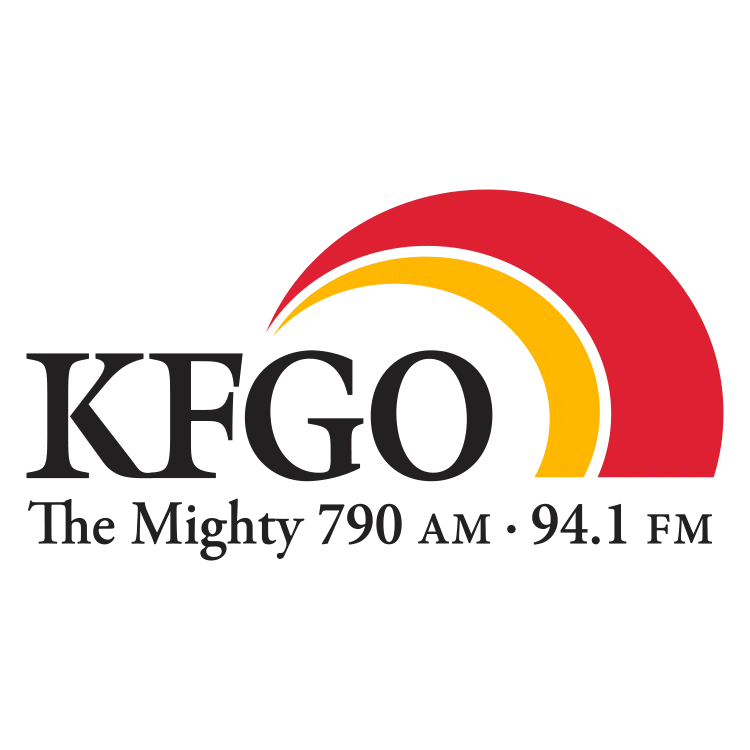
Rep. Mike Nathe, R-Bismarck, introduces a bill during a committee hearing on candidate ballot access on Feb. 7, 2025. (Michael Achterling/North Dakota Monitor)
BISMARCK (North Dakota Monitor) – Two proposals in the North Dakota Legislature seek to reshape how statewide and legislative candidates get on the ballot.
The bills follow an election season that saw some legislative incumbents skip their local endorsing conventions and two candidates win primaries without support of the Republican party.
North Dakota allows candidates to appear on the ballot for the primary or general election by either receiving a political party endorsement at the district or state level or obtaining a set amount of signatures.
House Bill 1446, sponsored by Rep. Mike Nathe, R-Bismarck, would eliminate the option of getting on the ballot through a party endorsement. Instead, all candidates for statewide office would be required to gather at least 2,000 petition signatures while legislative candidates would need 167 signatures, or 1% of their district’s population.
“Why not let the people of your district, let the people of the state decide who should be on the primary ballot versus a small group of political insiders?” Nathe said during a hearing Friday.
Nathe, a representative of District 30, skipped his district endorsing convention in 2024 with two other Republican incumbents and instead gathered signatures to get on the June ballot. They cited concerns about the fairness of the district endorsing process, including that a candidate was allowed to run the meeting. The incumbents overwhelmingly won in the primary and went on to win in November.
“By the petitions, we’re including everybody, letting everybody have their say versus what’s happening now, which is pushing people away, or people are intimidated, or don’t want to get involved,” Nathe said.
Leaders of the North Dakota Republican Party and former Republican Gov. Ed Schafer opposed Nathe’s bill. They said it would allow anyone, Republican or Democrat, to designate themselves as a member of a party with no affirmation from the party itself.
“HB 1446 is not the way to correct the fractures in the process today,” Schafer said. “It is the party that needs to correct the dishonesty, the inappropriate behavior that has entered into this nominating process.”
Schafer said without a party nominating process for its own candidates, the door would be opened for big money interests to flood the election cycle and boost candidates they deem appropriate.
“Government should not be dictating how a private organization presents its candidates’ values and character to the public,” he said

Former Gov. Ed Schafer speaks during a committee hearing on candidate ballot access on Feb. 7, 2025. (Michael Achterling/North Dakota Monitor)
Rep. Bernie Satrom, R-Jamestown, questioned the candidate vetting process at the party level. He said candidates who don’t agree with the party 100% of time get labeled a RINO, or Republican in Name Only.
Rep. Vicky Steiner, R-Dickinson, said the vetting process of candidates at the district level is important to make sure Republican candidates are actually Republicans.
“That’s a vetting process to make sure that our values are carried to the ballot,” Steiner said.
Nathe said many Republicans feel like they are not being heard and questioned why districts get to define who is, and isn’t, a Republican.
“Once you are on that ballot, then there is a primary contest and they are getting vetted through the election process,” he said.
Secretary of State Michael Howe gave neutral testimony on Nathe’s bill. He told lawmakers his office may require more overtime hours or an extra full-time employee to help verify the additional signatures.
Another bill would essentially do the opposite.
House Bill 1424, sponsored by Rep. Ben Koppelman, R-West Fargo, would eliminate the option of gathering signatures to get on the primary ballot if the party makes an endorsement. If the party does not make an endorsement, candidates could get on the ballot by collecting signatures.
Koppelman said North Dakota is unique because it doesn’t have party registration requirements for the primary and doesn’t have voter registration.
“Really what we have are a bunch of people that aren’t members of a political party that weigh in in the primary to pick who that party’s nominee is so that they can again weigh in in November,” Koppelman said.
At the Republican Party’s state convention in 2024, Julie Fedorchak did not receive the party’s endorsement for Congress and Kirsten Baesler did not receive a letter of support from the party for superintendent of public instruction. Both obtained signatures to get on the June ballot and overwhelmingly defeated their competitors. Other candidates have skipped the state convention in recent years, including former Gov. Doug Burgum in 2016.
Koppelman’s bill would also empower the Secretary of State’s Office to investigate complaints about political endorsement conventions.
Howe opposed that aspect of his bill.
“Our office is not involved in any of these endorsing meetings or activities as they are a function of the party and in no way overseen by the Office of the Secretary of State,” Howe said. “This bill seeks to insert a state agency in the Office of Secretary of State into the middle of party politics.”
No other people spoke in opposition to the bill.
Sandi Sanford, chair of the North Dakota Republican Party, said the party has work to do to address perceptions around the endorsing processes.
“Everything we’re dealing with is fixable,” Sanford said.




Comments